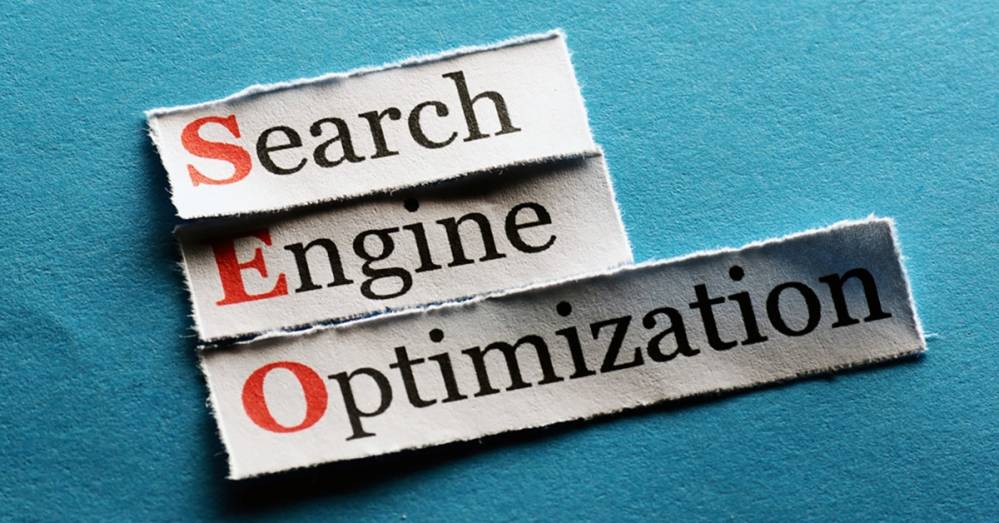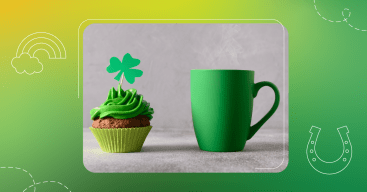As a small business owner, you’ve got a lot on your plate. Juggling your finances, day-to-day tasks and making time for life outside of work can all be exhausting. Fitting in the time to learn what might seem like another language (after all, what does “SEO” even stand for)? That can be an even greater challenge.
Here’s the rundown on a few key terms to help your business get started on SEO — and help you climb up the search engine results page (or SERP).
1) SEO (Search Engine Optimization)
SEO, or “search engine optimization,” is the process of creating, updating and adding content and code to help your website appear higher up on the SERP — all to help your site to get found! Google and other search engines sift through web content (links, original content, keywords, etc.) to find the perfect matches for what people search for.
The goal of SEO is to gain organic traffic through these search results. But it’s not just about getting more visitors — it’s about getting in front of the right visitors who are actually looking for your particular product or service. Once you get the right visitors to your site, you have a better chance of turning them into new customers.
2) On-Page SEO vs. Off-Page SEO
There are several types of SEO, but they all work together toward the same goal — getting you found in the search results.
On-Page SEO is what you do to your website
On-Page SEO is everything you do on your website’s pages to improve their ranking. This includes basic tactics like:
- Creating unique, useful content on each page of your site
- Linking content in one page of your site to another page in your site
- Making sure you’ve created unique title tags for each page of your site
The code you use behind the scenes (and the platform you build your site on) can have an impact too:
- HTML and CSS coding
- “nofollow” and “noindex” tags
- 301 Redirects
Off-Page SEO is what happens outside your website
Off-Page SEO is anything you do to improve your SEO ranking outside of your website pages themselves, including:
- Linking to other, more authoritative websites in your industry
- Getting links from other trusted sites (“backlinks”) to your site
- Publishing your own content on a blog or other site that links back to your site
And don’t forget about posting content that links to your site on social media — and getting your friends, fans and followers to like, share and retweet it.
[Related: SEO For Small Businesses — On-Page, Off-Page and Local SEO]
3) Internal and External Links
Links are incredibly important to your SEO strategy, and they tend to fall into one of two categories.
Internal links help to enhance your On-Page SEO
Internal links are hyperlinks on your site’s pages that link visitors to another relevant page on your site.
- They help visitors easily navigate through your website
- They establish an organized hierarchy of information on your site
- They establish link authority, which informs SEO algorithms
And they help to keep visitors on your website for longer — giving your content more time to convince them to choose your business.
External links help to enhance your Off-Page SEO
External links are hyperlinks that take your visitors from one of your site’s pages to a page on another site. These can include:
- Your social media profiles, a video channel or external blog
- A site for one of your vendors or partners
- A site with relevant, authoritative content and resources for your industry
While it might sound like external links drive visitors away from your site and your business… linking to relevant and useful content on other trusted sites will improve your site’s credibility. Plus, when you link to these other sites, their owners may return the favor and reward you with a valuable backlink (aka a link from their site or blog to your site). It’s a win-win.
4) Meta Tags and Keywords
Meta tags and keywords help search engines understand:
- What each page of your site is about (which is why they need to be unique to each page!)
- Whether or not your site’s pages are relevant to someone’s search
While keywords are no longer the primary way that search engines assess your pages’ content and determine your search ranking, using the words your customers are using (i.e. what they would search for to find your page) is still a best practice — and a great way to show your visitors that they’ve come to the right place.
Pay particular attention to:
- The Title (or <title>) tag of each page
- The Meta Description (or <description>) tag of each page
- Using relevant, common sense keywords in the text of your pages
Title tags are often used by Google as the actual clickable link in the SERP… Meta Description tags have a strong influence on whether or not someone clicks on your result (but no direct bearing on your ranking)… and again, using the words your customers use in your site content will help them understand what you do and, hopefully, choose your business.
5) Analytics
Analytics (for example, Google Analytics) is the software you use to gather data about what your website and online advertising is doing to reach its goals. By adding analytics code to your site, you can see:
- How many people are visiting your site, and how they got there
- Which pages they’re visiting
- How long they stay on those pages, and where they go next
You can set up goals to track conversions (including form fills, downloads and more) and use all of this information to help you optimize your website… boost your SEO… and plan your marketing strategy.
There you have it! You’ve become an SEO master in a matter of minutes! For more on how you can improve your digital marketing lingo, check out our terms you should know about websites and our terms you should know about social media.



